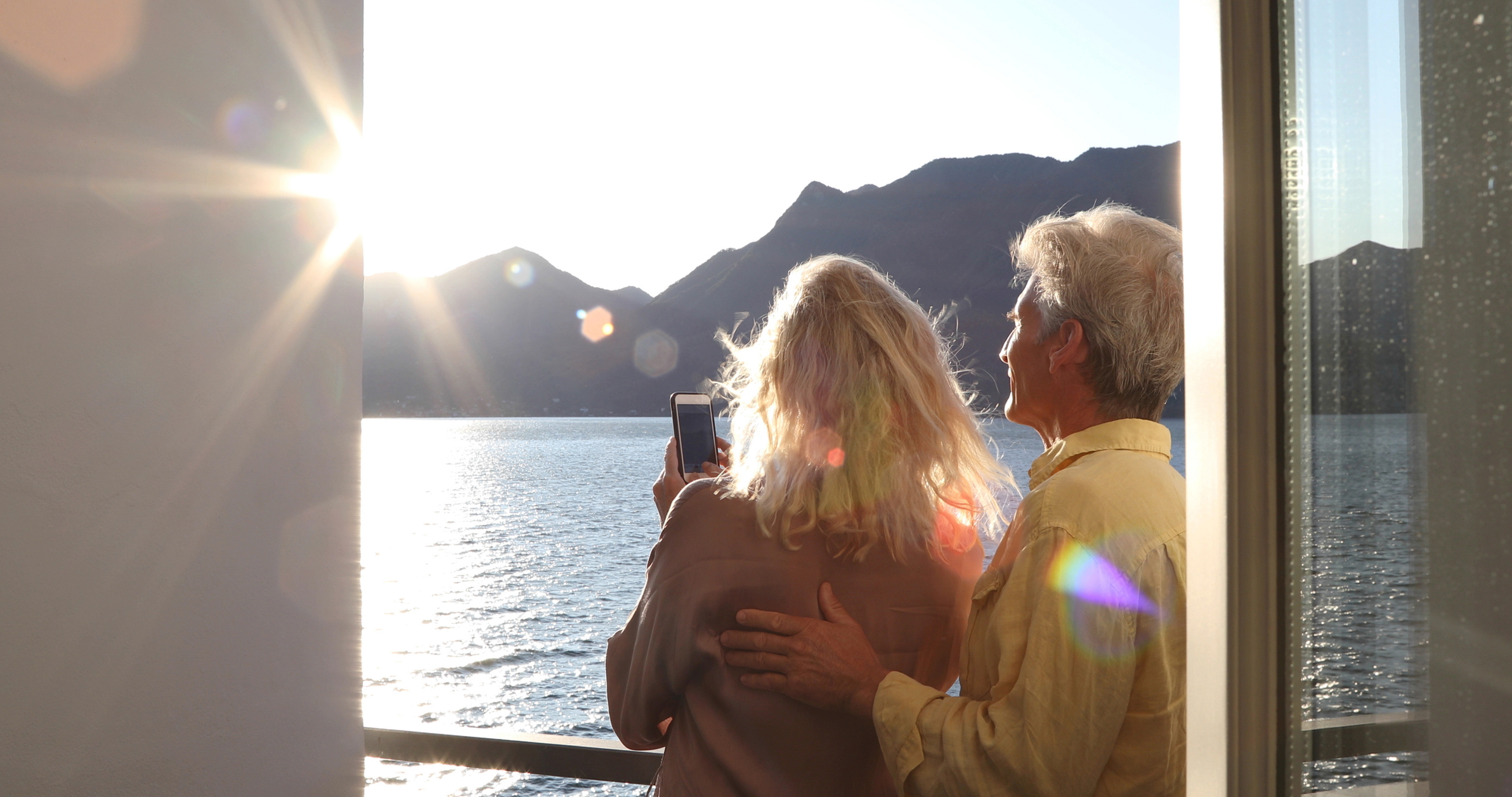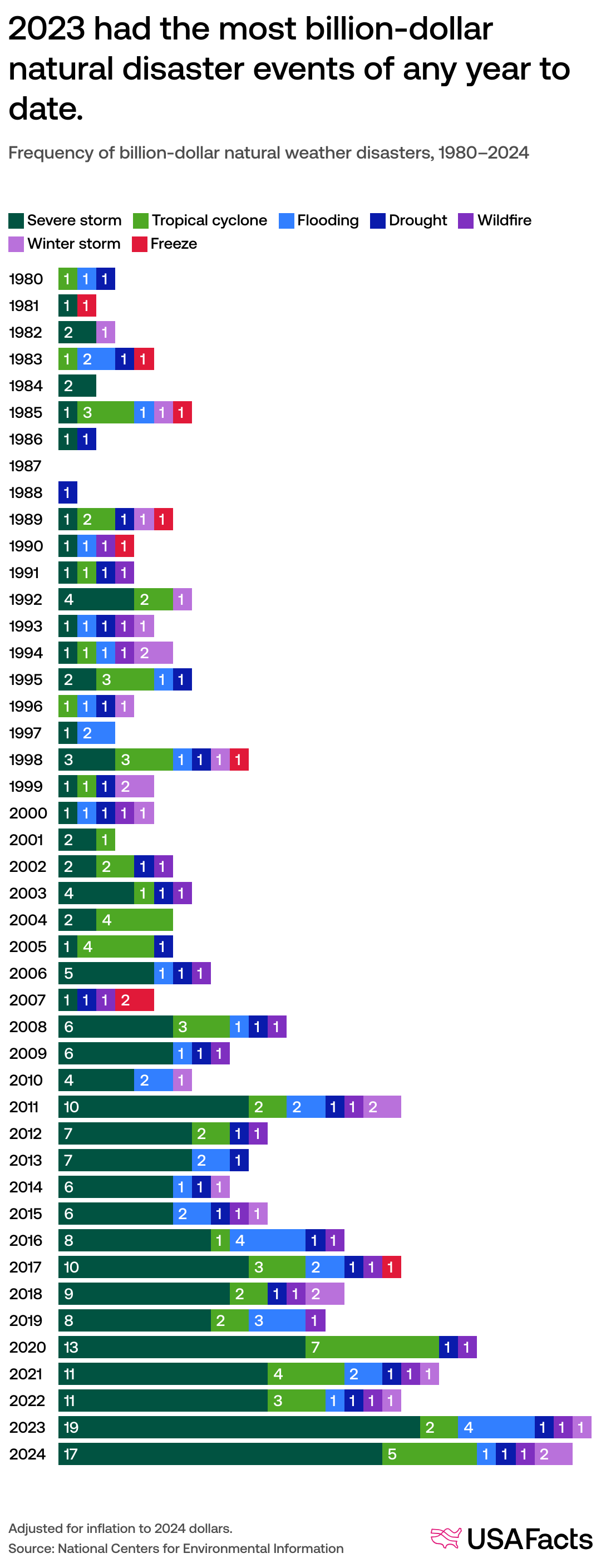So You Want to Age in Place: What Most People Overlook
If you want to age in place in your current home, near the beach or in the mountains, one risk could upend your plans. Here's what you need to know.


Profit and prosper with the best of Kiplinger's advice on investing, taxes, retirement, personal finance and much more. Delivered daily. Enter your email in the box and click Sign Me Up.
You are now subscribed
Your newsletter sign-up was successful
Want to add more newsletters?

Delivered daily
Kiplinger Today
Profit and prosper with the best of Kiplinger's advice on investing, taxes, retirement, personal finance and much more delivered daily. Smart money moves start here.

Sent five days a week
Kiplinger A Step Ahead
Get practical help to make better financial decisions in your everyday life, from spending to savings on top deals.

Delivered daily
Kiplinger Closing Bell
Get today's biggest financial and investing headlines delivered to your inbox every day the U.S. stock market is open.

Sent twice a week
Kiplinger Adviser Intel
Financial pros across the country share best practices and fresh tactics to preserve and grow your wealth.

Delivered weekly
Kiplinger Tax Tips
Trim your federal and state tax bills with practical tax-planning and tax-cutting strategies.

Sent twice a week
Kiplinger Retirement Tips
Your twice-a-week guide to planning and enjoying a financially secure and richly rewarding retirement

Sent bimonthly.
Kiplinger Adviser Angle
Insights for advisers, wealth managers and other financial professionals.

Sent twice a week
Kiplinger Investing Weekly
Your twice-a-week roundup of promising stocks, funds, companies and industries you should consider, ones you should avoid, and why.

Sent weekly for six weeks
Kiplinger Invest for Retirement
Your step-by-step six-part series on how to invest for retirement, from devising a successful strategy to exactly which investments to choose.
Are you thinking about aging in place, maybe in a warmer locale?
Like many of the roughly 20% of older adults who move for retirement, my father relocated to Florida to spend his retirement soaking up the sun and playing golf.
Unfortunately, this means that, to date, he's been in Florida for at least five hurricanes — one of which necessitated calling a contractor in a panic to help clear out space in the garage for his vehicle when he was on the edge of the hurricane's path.
From just $107.88 $24.99 for Kiplinger Personal Finance
Become a smarter, better informed investor. Subscribe from just $107.88 $24.99, plus get up to 4 Special Issues

Sign up for Kiplinger’s Free Newsletters
Profit and prosper with the best of expert advice on investing, taxes, retirement, personal finance and more - straight to your e-mail.
Profit and prosper with the best of expert advice - straight to your e-mail.
I'm far from the only one who spends hurricane season worrying about whether my aging parent will end up evacuating a severe storm, or worse, trapped in one.
It's not just Florida, and it's not just hurricanes. Ellen Kennedy, retirement editor at Kiplinger, faced similar yet different fears about her mother's exposure to weather events.
"We don't get too many hurricanes in the D.C. area, near my mother's house, but we do get the occasional winter storm that can dump a few feet of snow," Kennedy said. "While neighbors were wonderful, shoveling her walk and checking in on her, that wasn't a long-term solution. At times, my mother's house would also lose power in a storm, which left her vulnerable to dangerous heat waves in the summer."
For Kennedy and me — and millions of retirees trying to age in place safely or their adult children, who worry about them — the weather has become yet another cause of stress.
A growing body of research makes clear that extreme weather events are a safety concern that can disrupt plans to live independently and safely in the later years of retirement. Moreover, the annual rate of natural disasters are increasing, as the chart below shows.

Extreme weather can hit older adults hard — both physically and financially
Extreme weather is bad news for everyone, but for older adults, it can be a life-or-death matter. They're often the least equipped to cope with its consequences, to prepare for adverse weather events, and to withstand and rebuild from the damage. We've seen the devastating consequences of this time and again.
In July 2024, 75% of fatalities resulting from power outages after Hurricane Beryl in Texas were older adults who couldn't cool their homes or power in-home medical equipment. And, 73% of Lahain’a wildfire victims were elderly, with mobility challenges and economic vulnerability affecting their ability to leave. Adults 65 and over are also especially vulnerable to extreme heat.
Communities made up of older people can also take much longer to recover, putting survivors at risk even after the storm is over. Older displaced residents left coping with a lack of infrastructure in destroyed areas might face more isolation and have chronic conditions go untreated, further jeopardizing their health and safety.
Aging in place in the era of climate change
Many of the most popular retirement destinations are among those likely to be affected most adversely by climate change, with the AARP warning that the majority of metro areas with the fastest-growing 65-plus population are all in areas prone to extreme heat, hurricanes, or floods.
Retirement-friendly places are at risk
“People just generally are moving to places that are more prone to climate disasters,” Kaitlyn Trudeau, senior research associate for climate science at Climate Central, told AARP. “You’d think people would want to move away from disasters, but they’re moving toward them.”
This includes destinations in sunbelt states such as Florida and Arizona, which have traditionally been havens for older Americans looking to escape harsh winters. While some areas in these states might be bearable for the next decade, many areas may now be simply too hot.
But almost everyone wants to age in place
Whether older adults are already located in one of these high-risk areas or move to one after giving up work, it can be hard to convince them to rethink their retirement plans and live elsewhere — even for younger family members with concerns about their safety.
"Our mother was widowed at age 60, and she was ferociously capable and independent," Kennedy said. While her mother planned to remain at home, arranging for a friend to move in and adding a bathroom, things didn't work as expected. She began to slow down at 80, the friend who was supposed to move in died, and she started to need more help, but didn't want to move.
She wasn't alone. An estimated 90% of adults over 65 hope to remain in their current homes as they age, as they want to preserve independence and maintain connections to their community and past memories.
The burden on adult children
Unfortunately, when that becomes unsafe, it makes life very hard for younger relatives who might have to work to convince them that relocating is the only option — and who might have to make significant sacrifices until they help them to see this reality.
"This is probably the hardest conversation an adult child can have with a parent," Kennedy said, referring to talking with her mother about giving up her house. "She did not want to leave her home, but by the time she was 90, there was absolutely no way to keep her safe, given her age and more extreme weather."
How to age in place safely and make it work
Lean on family if you can
While Kennedy's mother found a retirement home she was happy with, my father is still living in Florida — a scenario made much easier by the fact that my family also relocated there for part of the year and purchased a home with an in-law apartment in which he now lives.
This isn't a solution that will work for everyone, of course, both because it's not always feasible for younger generations to offer this level of hands-on help and because not every retiree living in an area with extreme weather even has children or younger caregivers to turn to.
Be clear-eyed about your risk and your plan
If you're planning to age in place, you should assess your risk and develop a plan for resilience. It might involve new, reliable HVAC systems and a backup battery for the home, even if you don't have solar power.
If you're a younger relative or caregiver hoping to keep your older parent safe, you'll need to make contingency plans and put safeguards in place to respond quickly to weather issues.
"I made sure we had a car with all-wheel drive so we could reach her after a snowstorm," Kennedy said. "We had extra provisions for her, and for several years, the neighbors were a good backup in emergencies."
Plan for the extra help you'll likely need in the future
Kennedy also explained the best thing they did was to hire a companion and nurse, a solution that's an option only if you have the resources, knowledge and ability to make it happen — but that also remains an imperfect one when faced with the rising threat of climate change.
"The key to staying safe and happy when aging in place is finding a loving, trustworthy person to provide care when you need it, whether that's family or a nurse. But even with that assurance, a storm or flood could still put you and your home at risk. Our mother's retirement home has ample generators to handle blackouts. It's such a relief."
For those of us whose parents or older relatives aren't yet ready or willing to move to provide this peace of mind, though, watching weather reports closely and being ready to offer whatever help we can is about all we can do.
Read More
Profit and prosper with the best of Kiplinger's advice on investing, taxes, retirement, personal finance and much more. Delivered daily. Enter your email in the box and click Sign Me Up.

Christy Bieber is an experienced personal finance and legal writer who has been writing since 2008. She has been published by Forbes, CNN, WSJ Buyside, Motley Fool, and many other online sites. She has a JD from UCLA and a degree in English, Media, and Communications from the University of Rochester.
-
 Dow Leads in Mixed Session on Amgen Earnings: Stock Market Today
Dow Leads in Mixed Session on Amgen Earnings: Stock Market TodayThe rest of Wall Street struggled as Advanced Micro Devices earnings caused a chip-stock sell-off.
-
 How to Watch the 2026 Winter Olympics Without Overpaying
How to Watch the 2026 Winter Olympics Without OverpayingHere’s how to stream the 2026 Winter Olympics live, including low-cost viewing options, Peacock access and ways to catch your favorite athletes and events from anywhere.
-
 Here’s How to Stream the Super Bowl for Less
Here’s How to Stream the Super Bowl for LessWe'll show you the least expensive ways to stream football's biggest event.